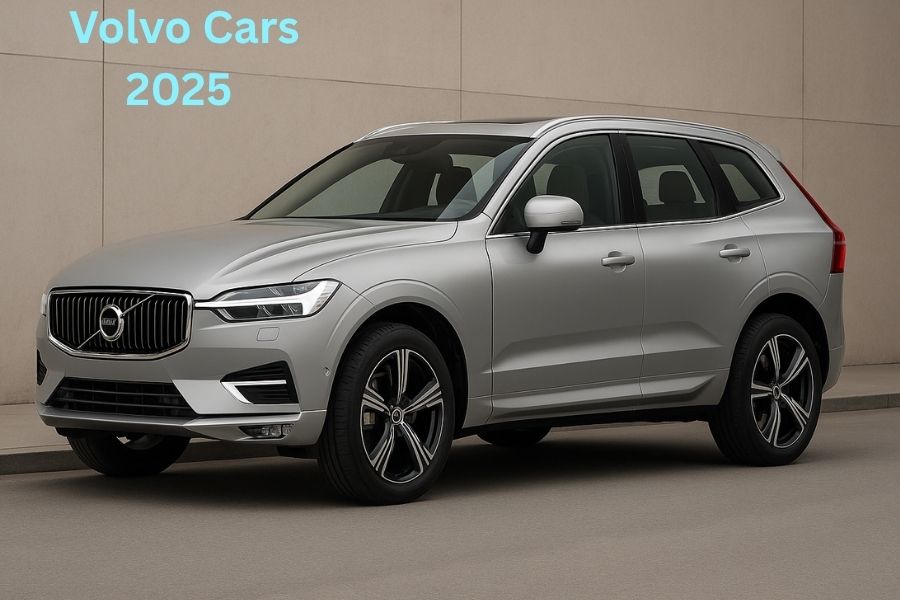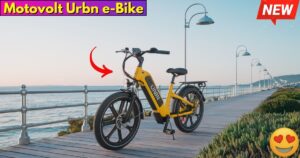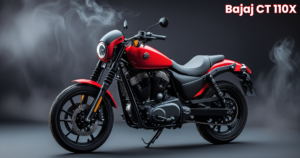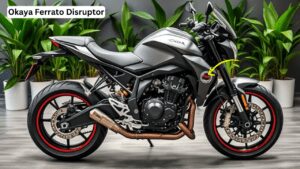The Legacy and Future of Volvo Cars 2025: Safety, Sustainability, and Scandinavian Design
Volvo Cars is a globally respected automobile manufacturer known for its commitment to safety, innovation, and Scandinavian design. Established in 1927 in Gothenburg, Sweden, Volvo has carved a niche in the global automotive market by prioritizing driver and passenger safety above all else. Over the decades, Volvo has evolved from a modest carmaker to a trailblazer in automotive safety and sustainability, setting benchmarks for competitors to follow. The brand is renowned for blending sleek Nordic aesthetics with cutting-edge technology and environmentally friendly practices.
Volvo Cars 2025: The Origin and Early Years
The journey of Volvo began with the launch of its first car, the ÖV 4, in 1927. At the time, Sweden lacked a reliable automotive industry that could produce vehicles suitable for the harsh Nordic climate. Volvo was founded to fill that gap, and its early vehicles were designed to endure Sweden’s challenging road conditions. In its formative years, the brand emphasized durability and ruggedness, characteristics that laid the foundation for its future success. The founders, Assar Gabrielsson and Gustaf Larson, envisioned building vehicles with the highest safety standards, and that vision has stayed central to the company’s philosophy.
Volvo Cars 2025: Global Expansion and Reputation for Safety
Volvo’s international expansion began in earnest during the 1950s and 60s. The brand quickly earned a reputation for engineering quality and safety. One of the company’s most significant contributions to the auto industry came in 1959 when Volvo engineer Nils Bohlin invented the three-point seatbelt. This revolutionary safety feature became a global standard, and in a remarkable act of corporate responsibility, Volvo gave away the patent to other carmakers to enhance road safety worldwide.
Throughout the decades, Volvo consistently introduced innovative safety features such as side-impact protection systems, whiplash protection seats, pedestrian detection, and auto-braking systems. These innovations helped reinforce the brand’s image as a leader in automobile safety. The introduction of crumple zones and child booster cushions further solidified Volvo’s commitment to protecting all occupants in its vehicles.
Volvo Cars 2025: Signature Design Philosophy
Volvo cars are a reflection of Scandinavian minimalism. The brand’s design philosophy focuses on clean lines, functional elegance, and purposeful simplicity. Inside a Volvo, drivers and passengers experience a serene and clutter-free environment, often adorned with high-quality natural materials like wood, leather, and metal accents. The interiors are engineered not only for luxury but also for comfort and practicality.
The exterior design is equally distinctive, with a modern and confident appearance that balances beauty with function. Volvo’s iconic “Thor’s Hammer” LED headlights symbolize the brand’s Nordic roots and advanced lighting technology. The restrained yet confident styling of Volvo vehicles appeals to discerning buyers who appreciate timeless design over fleeting trends.
Volvo Cars 2025: The Shift Toward Electrification
Volvo is at the forefront of the global automotive industry’s shift toward electrification. In 2017, the company made headlines by announcing that all new models from 2019 onward would be either hybrid or fully electric. This marked a significant transformation in the brand’s identity and direction. The company’s long-term vision is to become a fully electric car brand by 2030 and achieve carbon neutrality by 2040.
The introduction of models like the Volvo XC40 Recharge and the C40 Recharge signifies the company’s serious commitment to electric mobility. These vehicles combine Volvo’s signature safety and design features with zero-emissions technology. The brand is also investing heavily in battery technology and charging infrastructure in partnership with other stakeholders to make EV ownership more accessible and practical.
Volvo Cars 2025: Commitment to Sustainability
Beyond electrification, Volvo is embracing a holistic approach to sustainability. The company has pledged to reduce its lifecycle carbon footprint per car by 40% between 2018 and 2025. This includes everything from reducing emissions in manufacturing processes to using sustainable and recycled materials in car interiors.
Volvo is also innovating in sustainable production. Its manufacturing plants are moving towards renewable energy usage, and the brand aims to achieve climate-neutral manufacturing by 2025. Additionally, Volvo is focusing on the circular economy by designing vehicles with recyclability in mind and minimizing the use of rare earth metals.Volvo Cars 2025: Innovation in Autonomous Driving
Volvo has been a pioneer in exploring autonomous driving technologies. The brand’s vision of the future includes vehicles that not only protect passengers but also drive themselves safely and reliably. In collaboration with tech companies like Luminar and NVIDIA, Volvo is integrating LIDAR and AI-powered systems into its cars to make highly automated driving possible.
The forthcoming Volvo EX90 is expected to debut advanced driver assistance features, including a full suite of sensors capable of Level 3 autonomy under certain conditions. These innovations aim to reduce road accidents dramatically and bring a new level of convenience and comfort to everyday driving.
Volvo Cars 2025 : SUV Dominance
The popularity of SUVs continues to surge globally, and Volvo has skillfully tapped into this trend with its XC lineup. The XC40, XC60, and XC90 have been successful models for the brand, offering spacious interiors, high ground clearance, and strong performance. These SUVs cater to families and individuals looking for a blend of luxury, safety, and practicality.
The XC90, in particular, has become a flagship model, showcasing the best of Volvo’s engineering, design, and technological prowess. With its elegant styling, advanced infotainment system, and semi-autonomous driving capabilities, the XC90 remains a top choice for buyers in the premium SUV segment.
Volvo Cars 2025: The Rise of Polestar
Volvo’s performance sub-brand, Polestar, has evolved into a standalone electric vehicle brand. Co-owned by Volvo and Geely, Polestar focuses on high-performance EVs that merge sustainability with dynamic driving. Polestar models like the Polestar 2 and Polestar 3 share Volvo’s core safety DNA but offer a more performance-oriented experience.
Polestar plays a critical role in Volvo’s broader electrification strategy. The brand allows Volvo to experiment with new technologies and reach a more performance-focused audience without compromising Volvo’s traditional brand values. Polestar vehicles also offer cutting-edge software experiences, including integration with Google’s Android Automotive OS.
Volvo Cars 2025: Technological Integration and Smart Features
Volvo cars are known for their user-friendly technology that enhances the driving experience without overwhelming the user. The infotainment system in modern Volvos is powered by Google, offering seamless integration with Google Maps, Assistant, and Play Store. This native integration provides a familiar and reliable interface for drivers, eliminating the need for smartphone mirroring.
Volvo’s commitment to over-the-air updates means that vehicles continue to improve after purchase, with new features and bug fixes delivered remotely. This approach ensures that the customer experience remains fresh and up-to-date throughout the vehicle’s lifecycle.
Volvo Cars 2025: Focus on Customer Safety and Trust
At the heart of Volvo’s brand is an unwavering focus on customer safety and trust. This is evident in its transparent marketing, crash test ratings, and commitment to real-world safety. Volvo continues to perform its own rigorous crash tests in addition to standard regulatory tests, using real-life accident data to guide its engineering.
The company’s “Vision 2020” safety goal aimed to eliminate fatalities and serious injuries in new Volvo cars by 2020. While ambitious, this goal catalyzed many advancements in active and passive safety technologies, from blind spot monitoring to adaptive cruise control and pilot assist systems.
Volvo Cars 2025: Global Manufacturing and Reach
Although Volvo originated in Sweden, its manufacturing and design capabilities now span the globe. Volvo has production facilities in Sweden, Belgium, China, and the United States. The company’s plant in South Carolina, for example, produces vehicles not only for the North American market but also for export.
This global footprint allows Volvo to cater to regional market preferences while maintaining consistent quality standards. The company tailors its offerings to suit the needs of different markets, whether it be hybrid models for Europe or full EVs for markets with more robust infrastructure.
Volvo Cars 2025: Challenges and the Road Ahead
Despite its strengths, Volvo faces numerous challenges in the evolving automotive landscape. Competition in the electric vehicle market is intensifying with the entry of legacy automakers and startups alike. Moreover, geopolitical tensions, supply chain disruptions, and shifting consumer behaviors post-pandemic are affecting global operations.
Nonetheless, Volvo’s clear vision for sustainability, safety, and technology positions it well for long-term success. Its transparent approach to challenges and commitment to ethical business practices continue to earn consumer trust.
Conclusion: A Future Built on Principles
Volvo Cars stands as a testament to what an automaker can achieve when it places people at the center of its mission. From its invention of the seatbelt to its pioneering efforts in electrification and autonomous driving, Volvo has consistently led with integrity and foresight. The brand’s emphasis on safety, sustainability, and elegant design appeals to a global audience that values purpose-driven innovation.
As the automotive industry undergoes its most significant transformation in a century, Volvo remains not just a participant but a guiding force. With a future-oriented strategy and a deep-rooted legacy, Volvo is poised to shape the next era of mobility while staying true to its Scandinavian roots and human-centric values.



